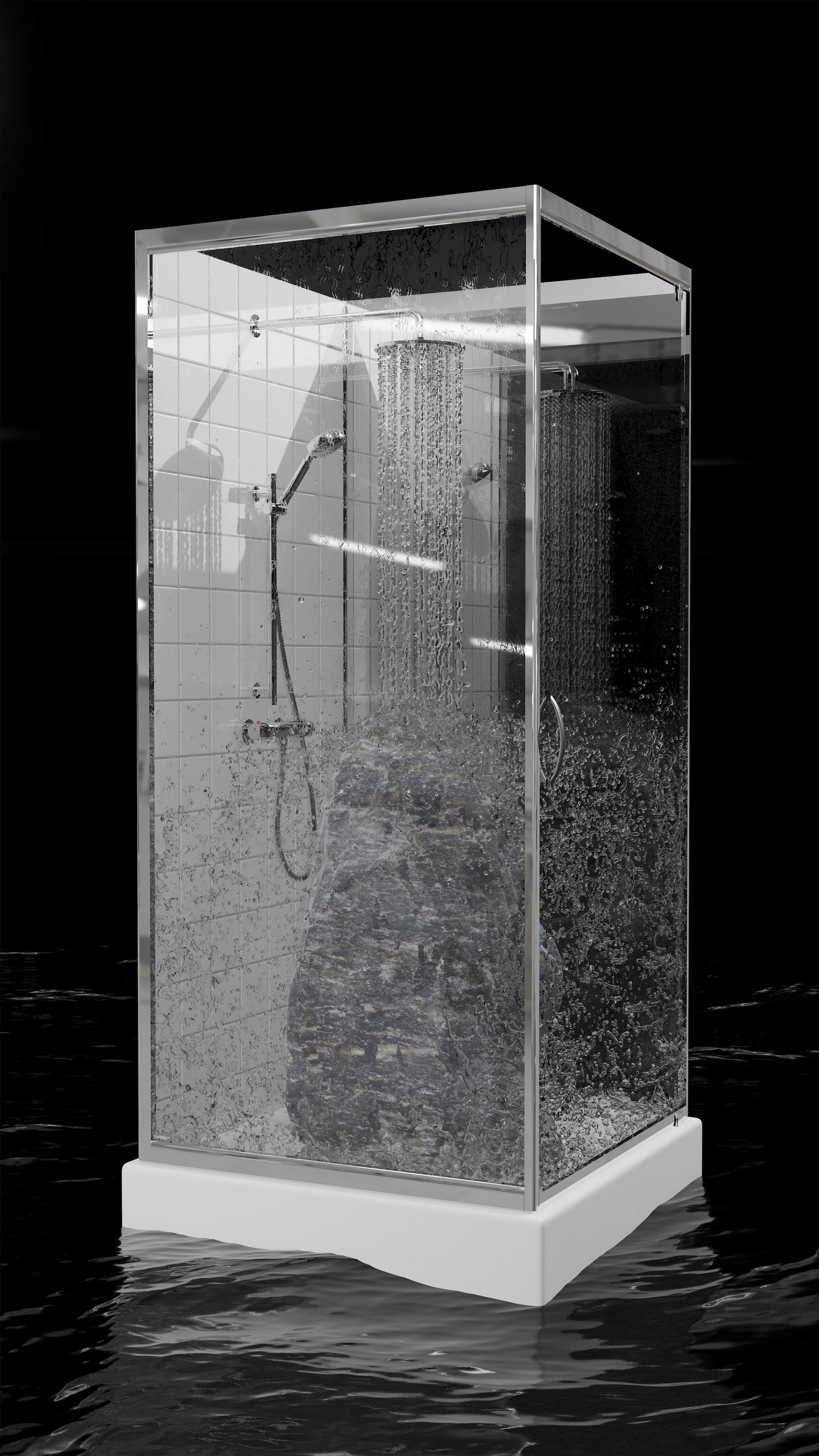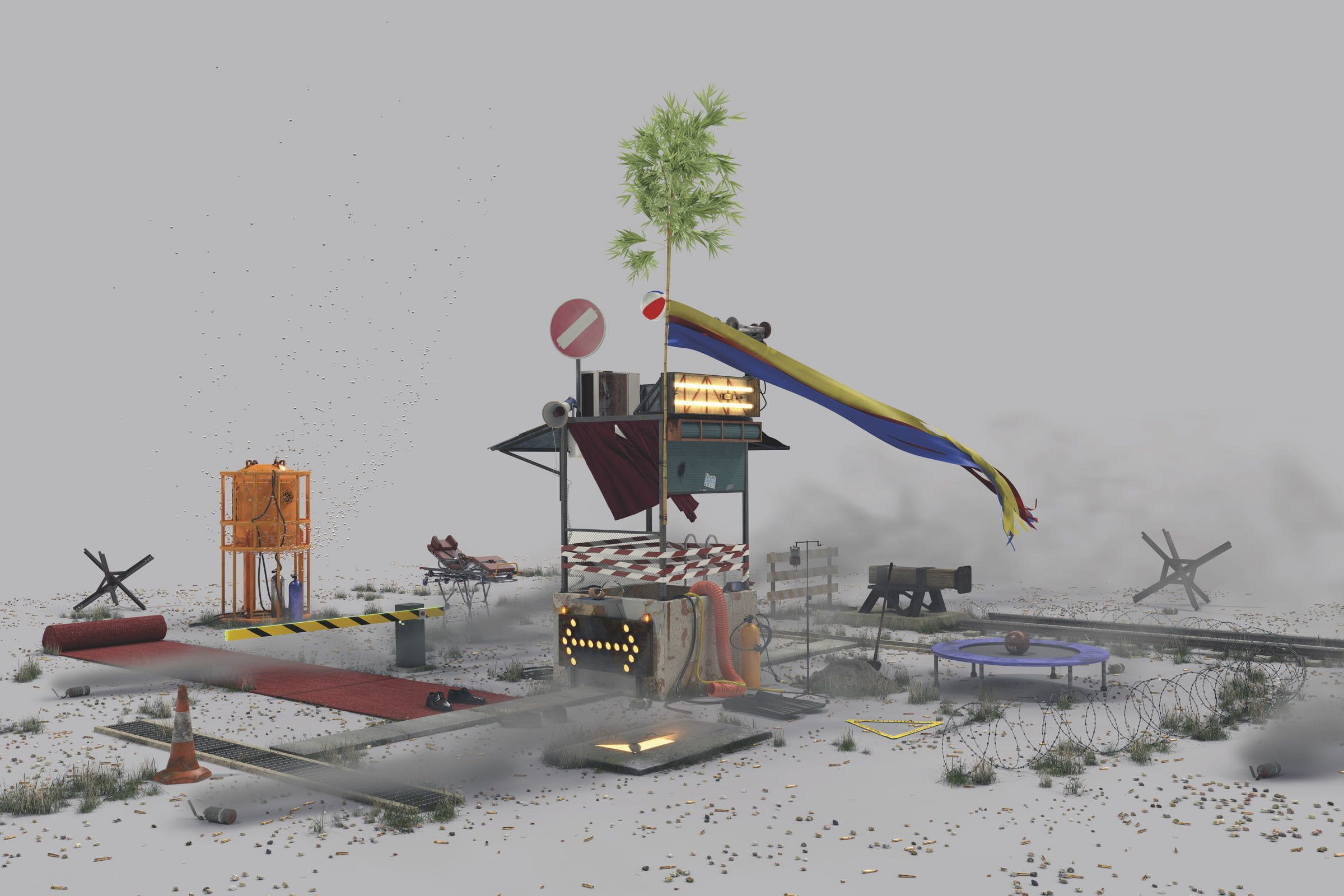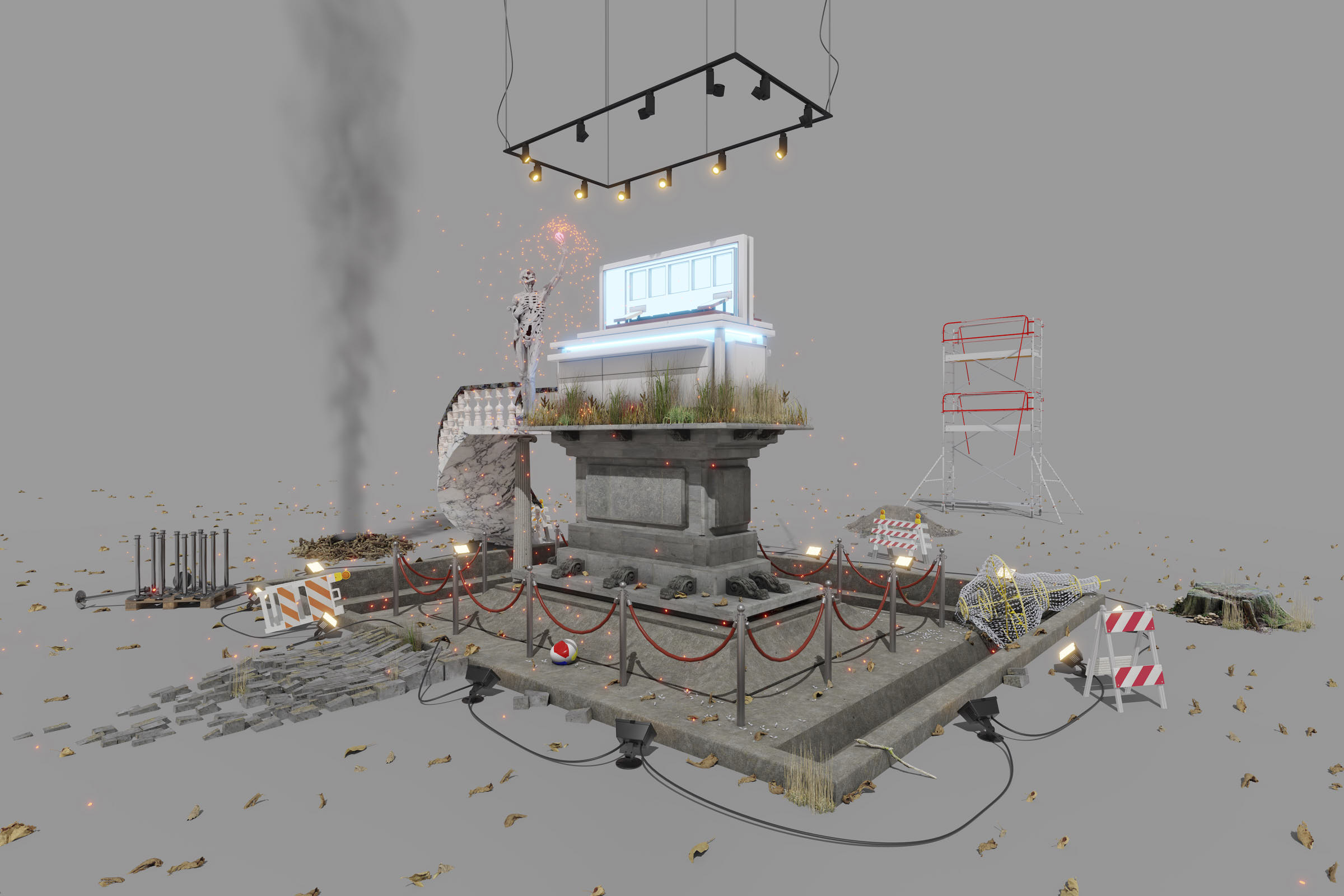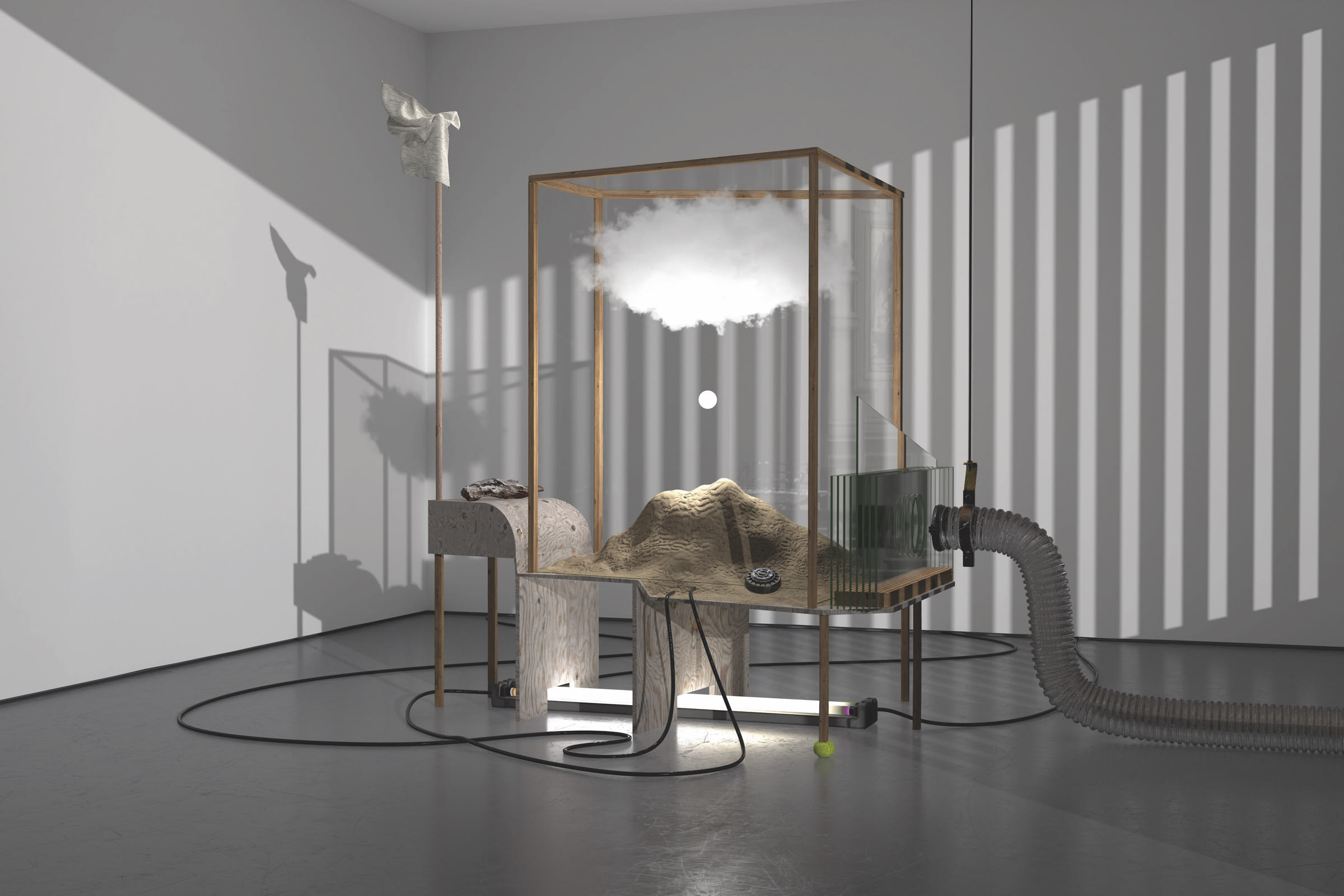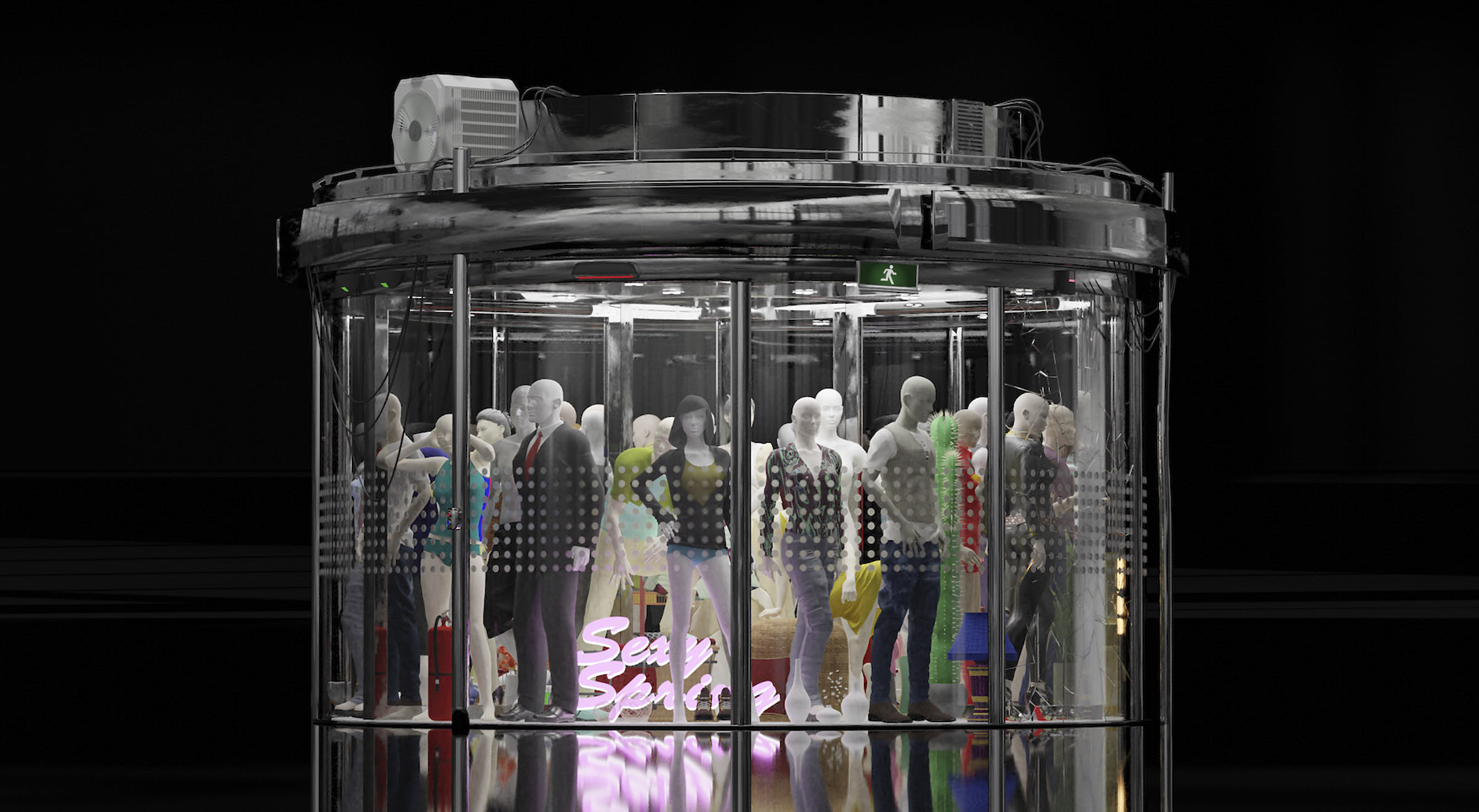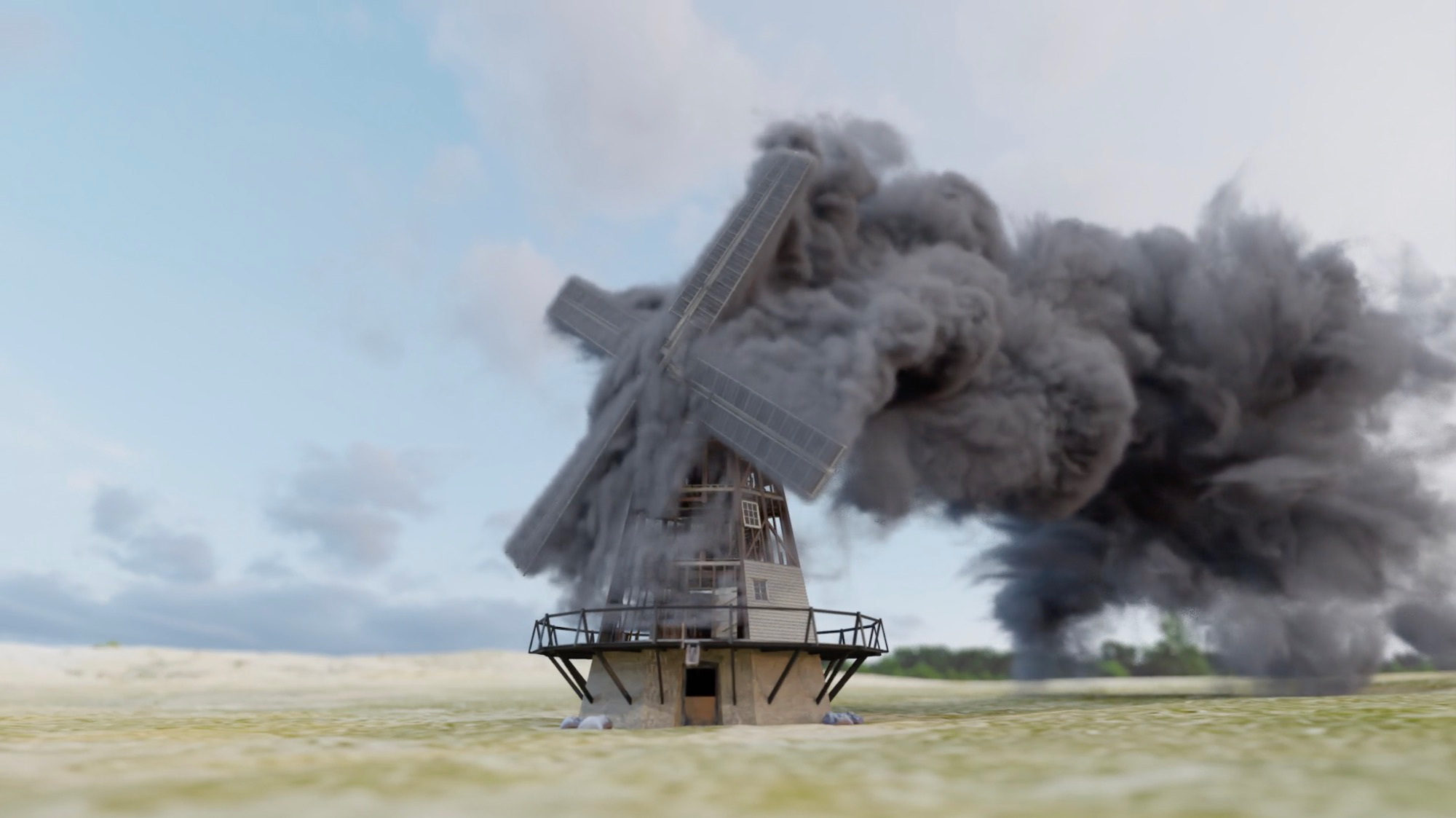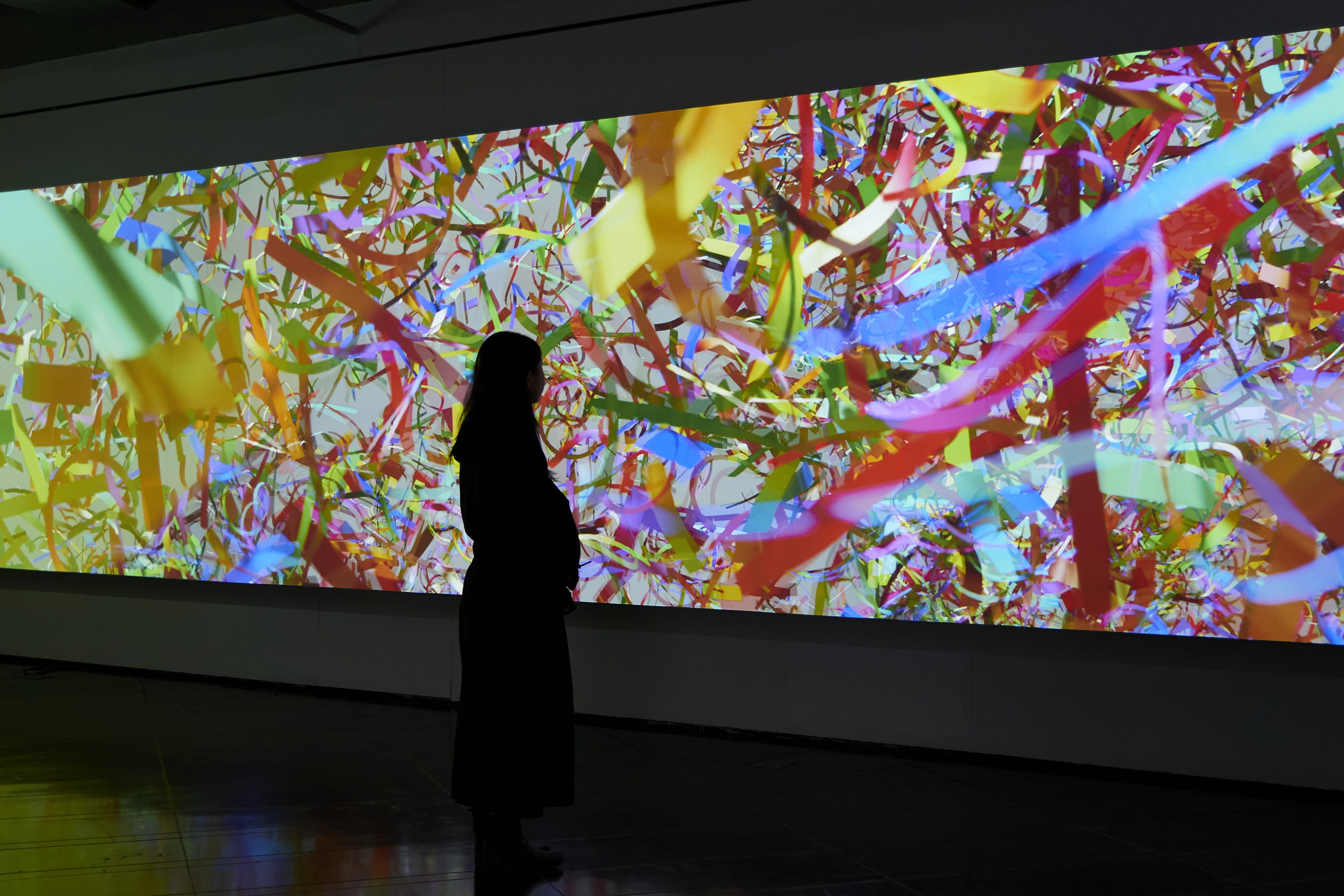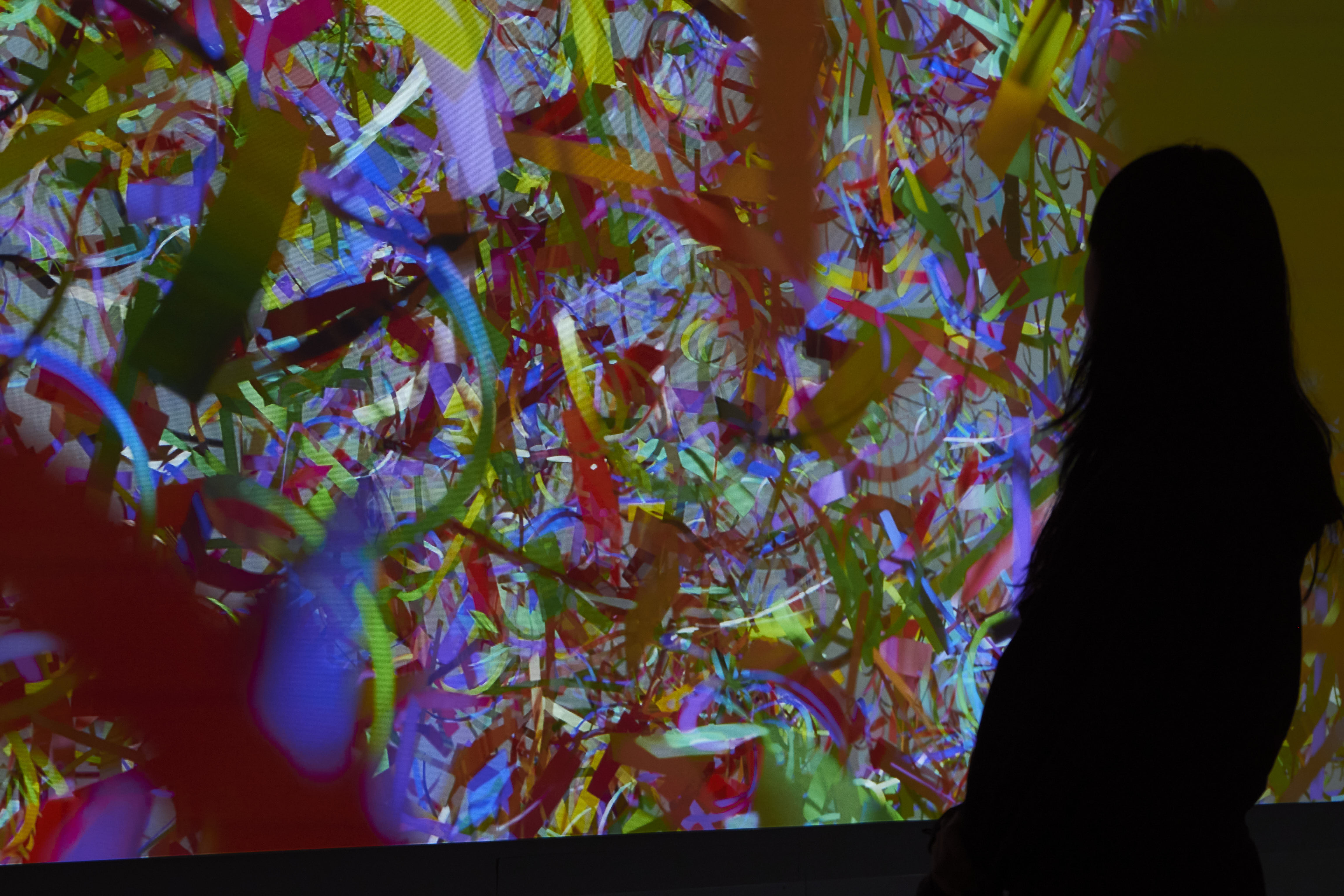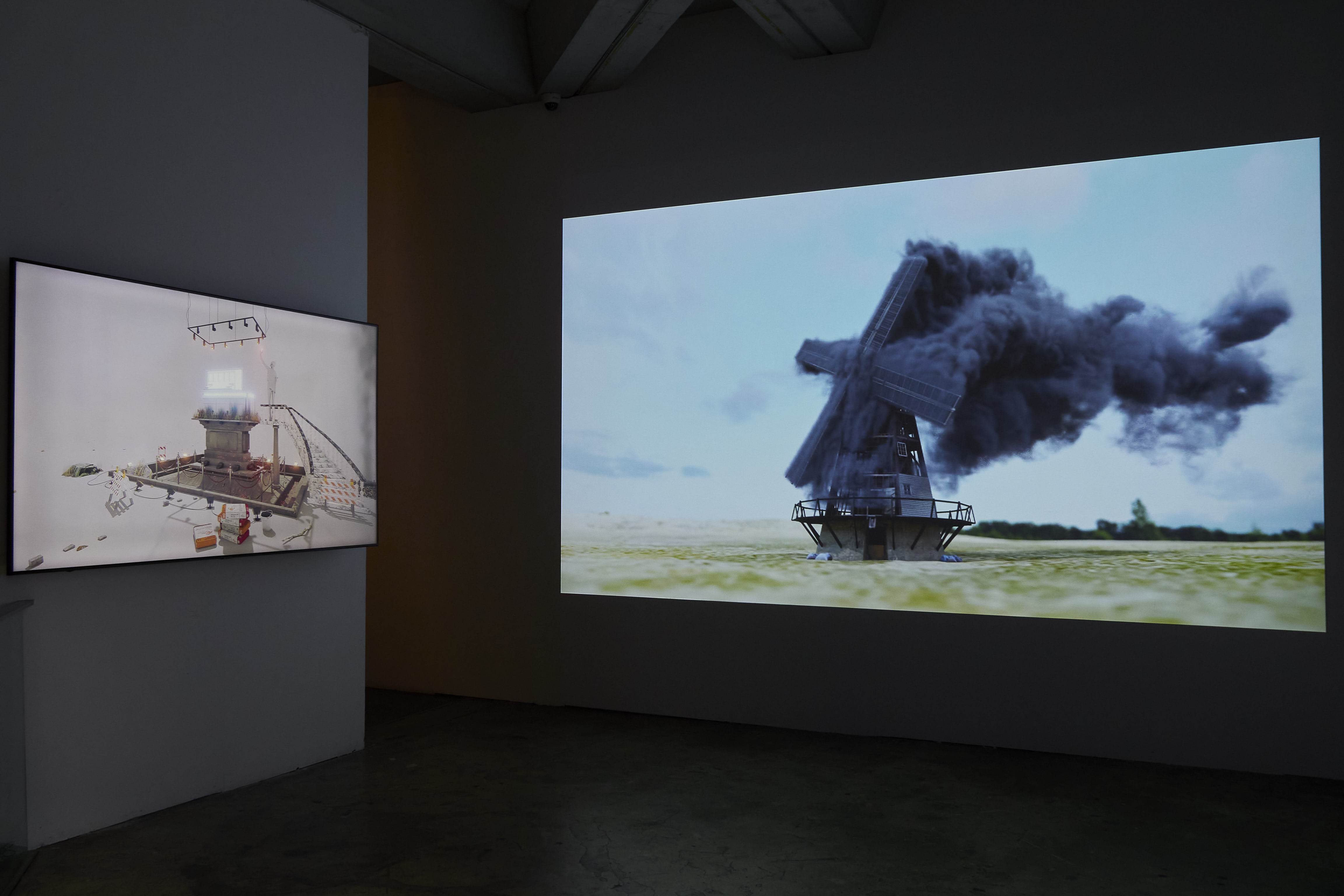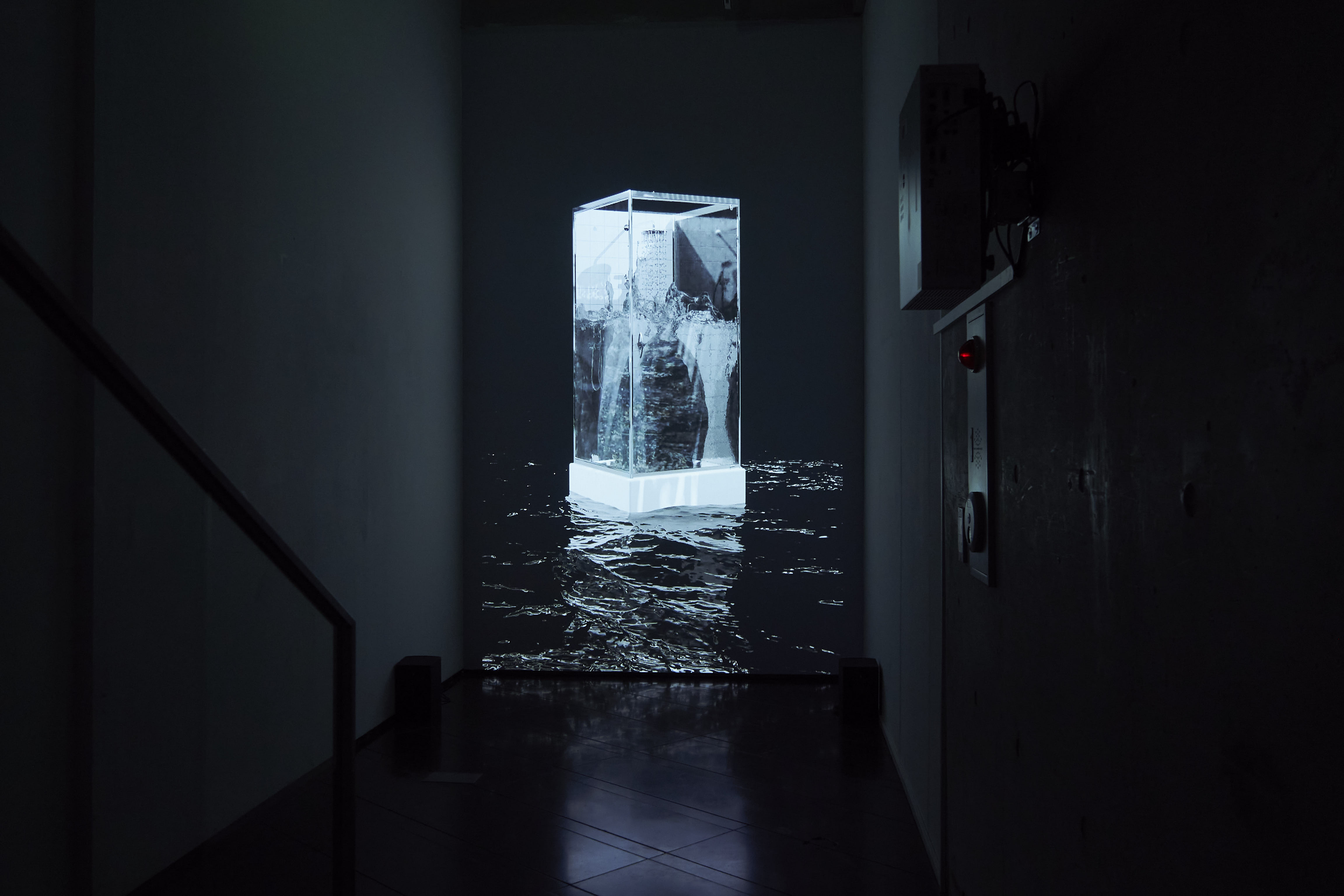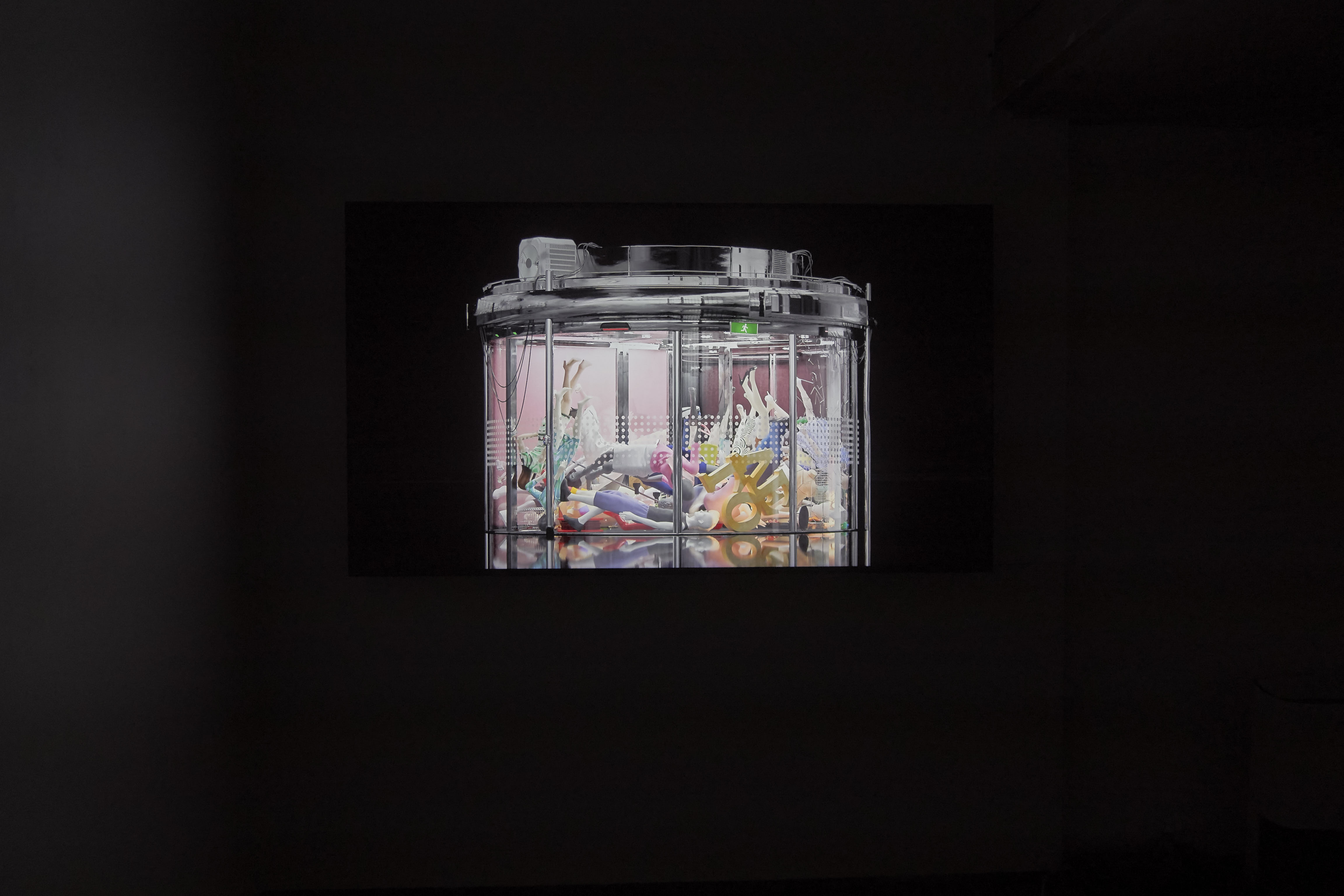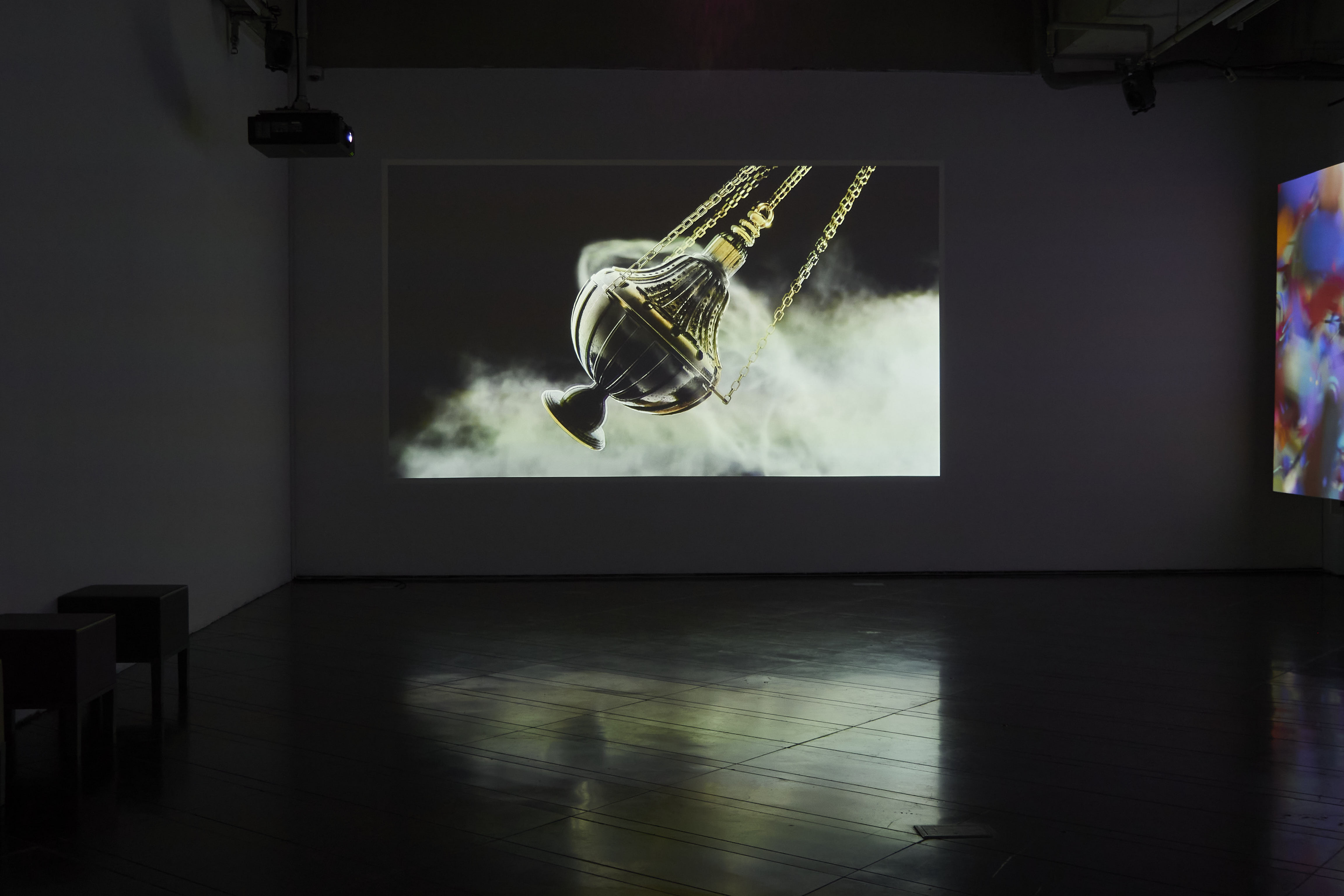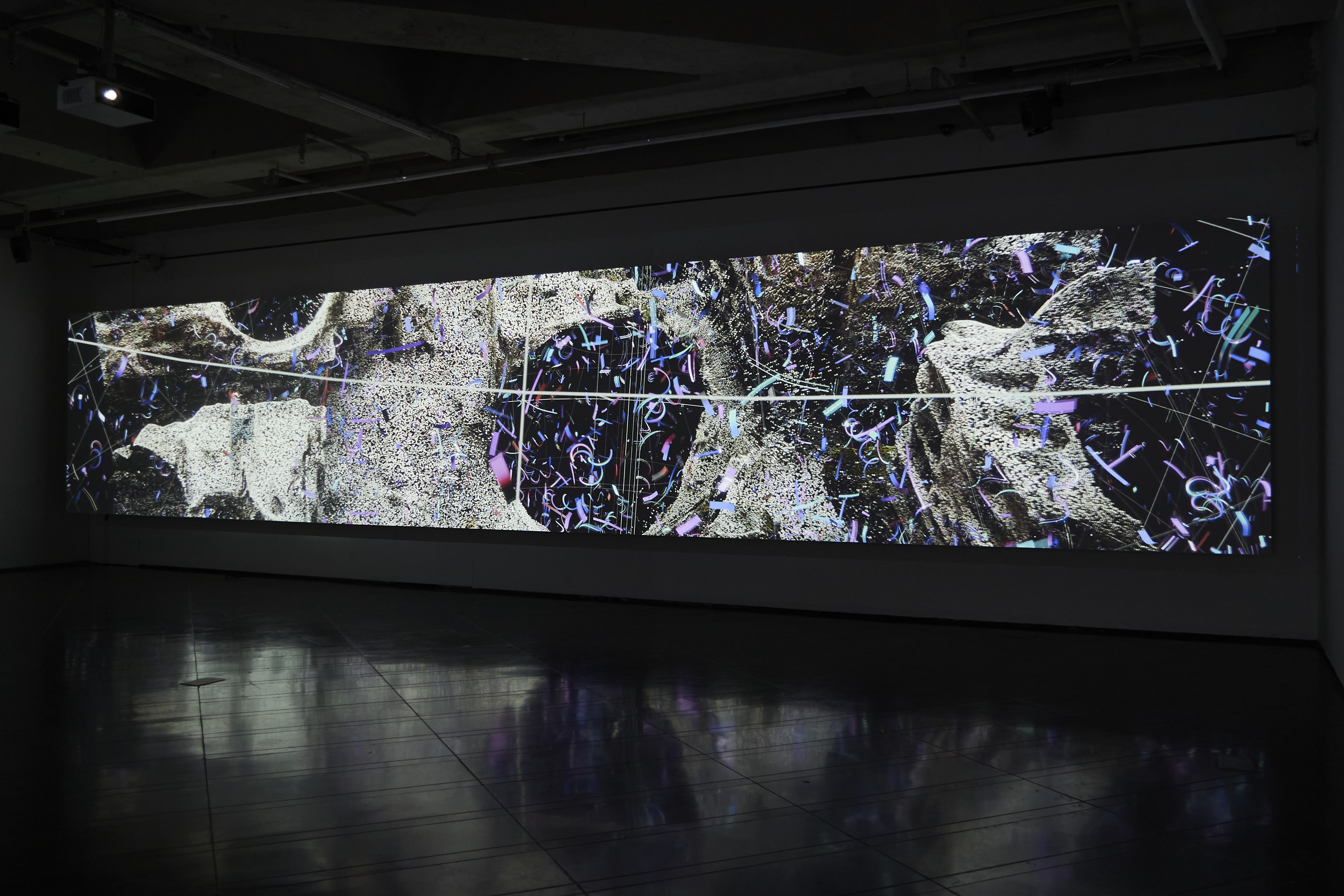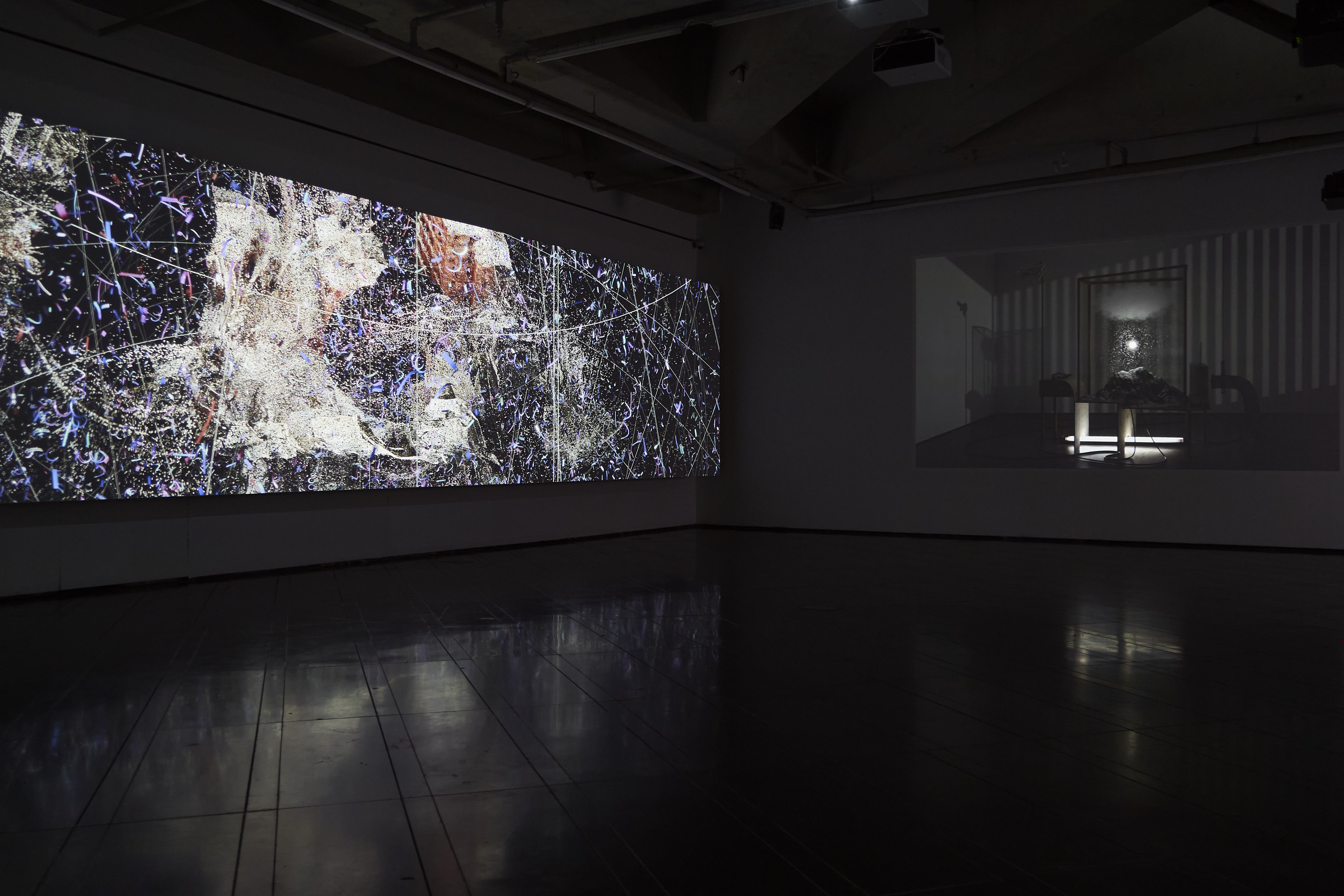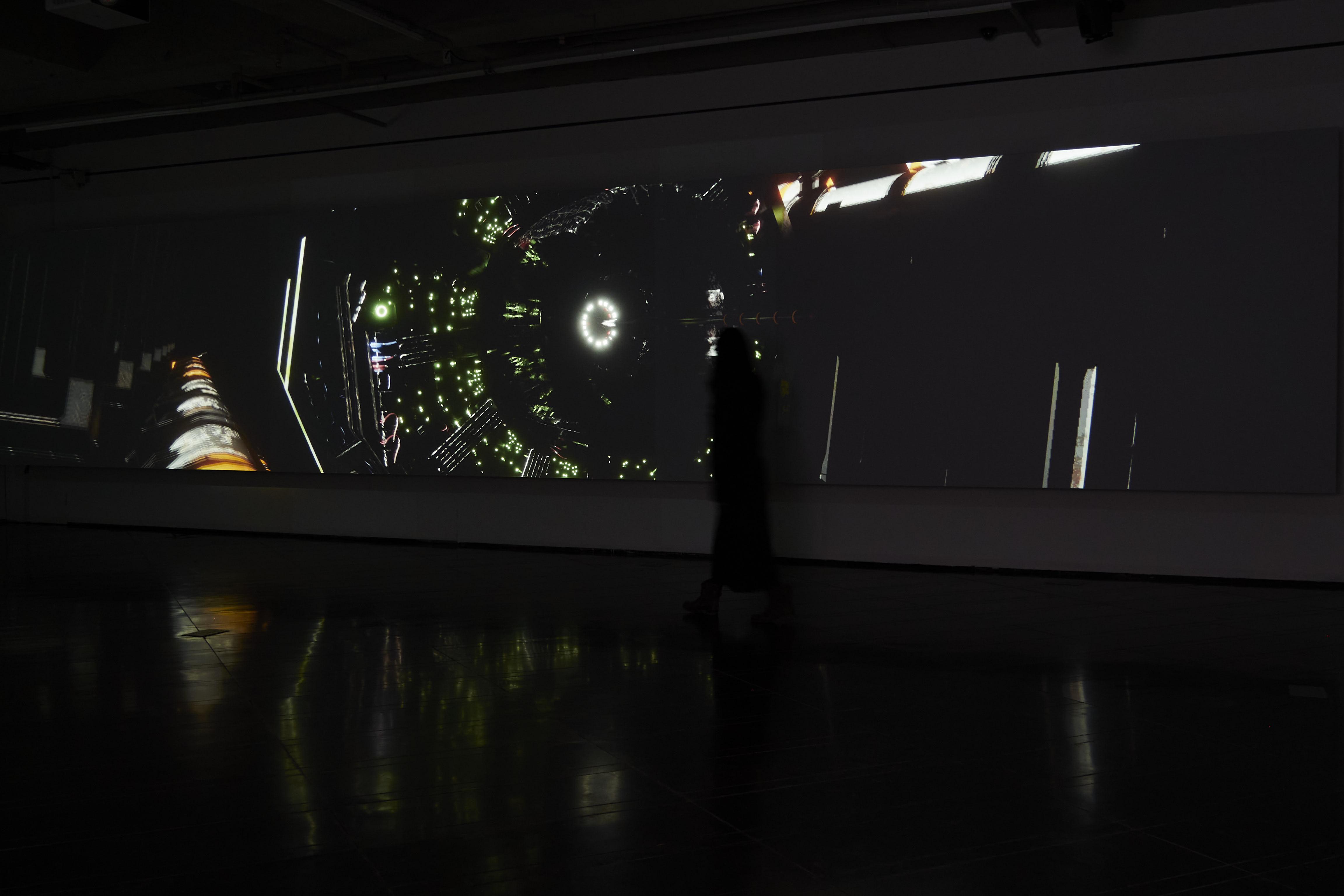For Jaehun Park, an artist based in Amsterdam, the present world is a real-time limbo, or perhaps purgatory. Purgatory, that middle space between heaven and hell according to certain religious world views, seethes with souls seeking tempering and purification by fire as a necessary step toward heaven. In one part of the world, a building collapses in a bombing, while half-way across the globe, 30 million subscribers to a YouTube consumer-review channel are abuzz at the launch of some new product. Millions of people continue to test positive for COVID-19 per day, news of yet more murders and suicides stemming from poverty and hardship are constantly reported; meanwhile a luxury brand store in the heart of the capital is ringed by people lining up to gain admittance. Capitalism, rapture, and despair come and go, all tangled up in this real-time purgatory.
The ticket for admittance into heaven directly out of a far-reaching capitalist system, in which objects and capital are valued more highly than religion, is akin to successfully obtaining one’s entry into a boutique store after waiting in line, sometimes for hours. Jaehun Park sees in capitalism elements that are analogous to religion. He connects scenes of bottomless human desire and catastrophes to hellscapes and post-apocalyptic landscapes. A digital sculptor, animator, and simulator, Park is the Creator here of a virtual world constructed using CGI. This world is devoid of humans. Only objects on which human desire is projected exist in it, objects imbued with the ideologies of humankind. These document the human world in their entanglement. Park has taken inspiration from the grotesque sensibility of Hieronymus Bosch’s Hell as well as the torture devices depicted therein. The function of the objects in Park’s video work are inverted to reveal, in strange and bald fashion, human life in the absence of humans.
The video installation Event Horizon digitally recreates images from various places on earth that have been devastated by war and catastrophe. The most primal form of nature, rocks; the ruins of buildings in war-torn Syria and Palestine; the nuclear reactor at Fukushima; the particle accelerator known as the Large Hadron Collider at CERN; Confetti to celebrate a joyous occasion – through these five sequences, the work presents sites of actual tragedies as virtual locations. Through the use of innovative methods like photogrammetry and point clouds, these sites become territories of the imaginary that are as unpredictable as event horizons. The immense scale and showy images created by the latest technologies depict tragedies unfolding on the other side of the world.
In this way Park fashions a manipulated reality inside the virtual realm of digital space, and through this allegory of capitalism lays bare the true face of reality in common objects. Fancy capitalist objects merge with supernatural phenomena to present us with a hellish, desolate space. In the 3D animation High Altar, Park used 3D modelling based on measurements of cosmetics-counter display cabinets in a department store. The strategic, sales-oriented design of the counters and the Renaissance-style Transi are presented as religious altars in a display of human vanity. Revolving Door was rendered from a 3D model of a revolving door in the branch of De Bijenkorf department store in the Hague. The plastic mannequins trapped inside the revolving door perform simulated processes on a loop, which are based on exact calculations of the movement, speed, weight etc. of the door. Revolving doors in shopping malls and department centers are the first gate as it were into the world of consumption. The mannequins, forever locked inside and knocked about by the spinning doors, seem an apt metaphor for the endless greed and violence endemic to hypercapitalism.
In the video Overheated Windmill, a windmill keeps turning, soundlessly, despite having caught fire. Windmills are a representative symbol of the Netherlands, a beautiful cultural heritage that hides their original function and history as one of the foundations upon which the construction of colonies in other parts of the world by the Dutch rested in the country’s Age of Discovery. Park makes an analogy between windmills with their obscured historical contexts and overheated capitalism. In Ritual for the Night, we see a suspended censer, possibly a Catholic thurible, carpets from the Middle East, medical hoses, broadcast cables, and metal chains. A BBC report of an Israeli attack on Palestine is projected onto the surface of the shiny censer. A Syrian friend of the artist meets his brother, who he had not seen for ten years due to the war, while playing the war game Battlegrounds. The two brothers, unable to communicate over phone or the internet without fear of being censored and thus having this sole means of connection, are victims of war and beneficiaries of a war game.
Human greed and imagination have turned reality into something that surpasses purgatory. Viruses, excessive speculations in real estate, the consumption of luxury goods, accidents, disasters, fatalities arrive day after day, in an unceasing tidal wave. News conveying these stories are to some hellish, and to others heavenly. The planet, overrun by capitalism, is polluted, quantified, wasted, and discarded. Nature is wiped out, leaving only numerical real estate. Ugly desire and overheated capitalism package tragedy as comedy, screams of despair as shouts of elation. This is the capitalist purgatory in which the technologies of heaven and hell come and go in real-time.
Text by Sun Mi Lee, Curator, Alternative Space LOOP
Translated by Emily Yaewon Lee
Jaehun Park (b.1986-)
Jaehun Park is a Digital Sculptor, Animator and Simulator based in Amsterdam and Seoul. He utilizes Computer Generated Imagery(CGI) to reveal the human impact on Earth’s ecosystem, caused by hyper-capitalism and humanity’s endless desires. Park’s solo exhibitions include ‘Flash’ (Cyartspace, Seoul, 2013), ‘A Windless Room’ (Artspace O, Seoul, 2016), as well as having participated in numerous group exhibitions such as ‘Here we are now’ (ARWE Gallery, Gouda, 2020), ‘Infra’ (Susan Bites, The Hague, 2019), ‘Spring Up’ (Art Factory, Heyri, 2014). His works are part of the collections of the Seoul Foundation for Arts and Culture (SFAC) and the Korea Institute for Advanced Study (KIAS). He was selected for ‘2021 International Open Call for Artist’ by Alternative Space Loop.







